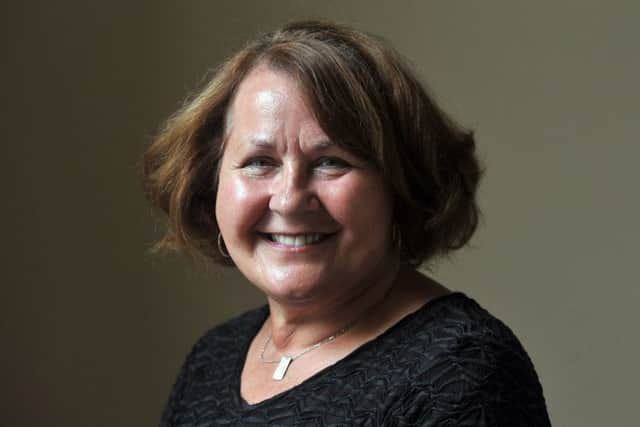Thelma Walker: The future of our local services and what Finland can teach us


On the Select Committee on Education, it comes up when discussing alternative provision, support for children with special educational needs and disabilities, health and care plans, and school funding more widely.
Advertisement
Hide AdAdvertisement
Hide AdIt comes up in speeches and questions on issues such as adult social care, finance, carbon emissions and homelessness, as well as in discussions with colleagues and constituents. The work that local government does covers a broad range of important areas, and affects our constituents’ lives in so many ways.


It is because the work of local government is so widespread that the effects of the cuts have been so far-reaching. The impact has been seen across services and across our country. We know that deprived areas have been hit the hardest, and that Labour councils are due to see falls of 28 per cent on average, compared with a 19 per cent fall for Conservative local authorities. Nine of the 10 most deprived councils in the country have seen cuts of almost three times the national average of £255 per household. Too often, there is a blame game with local authorities when it is central Government who have cut funding and shifted the burden onto local communities.
How did we get here? In the name of austerity, round after round of cuts have been dealt to local authorities. Between 2010 and 2020, local authorities will have seen reductions of £16bn in core Government funding. Adult social care, children’s services and homelessness support have been pushed to breaking point. Other services, such as youth centres, museums and libraries, have just closed.
The situation has occurred in spite of the incredible hard work being done by councillors and council workers. I have seen that first hand, not just as an MP, but as someone who is married to a local councillor. I have seen the hours and the commitment that is put in to support the frontline of government, to build communities, boost life chances and make a difference to everyone’s day-to-day life.
Advertisement
Hide AdAdvertisement
Hide AdIn 2018, Unison surveyed council workers and found that 79 per cent are not confident about the future of local services. In my constituency of Colne Valley, 90 per cent of council workers surveyed said that budget cuts in the past two years have had an impact on their ability to do the job as best they can. Can we just think about that figure? Some 90 per cent of the workforce lack confidence in their ability to deliver their service.
I would like to share some feedback from someone in my constituency who worked supporting children and families in children’s centres, but now described that work as “destroyed”, and the positive outcomes of the work as “overlooked”.
I was a headteacher and a teacher for 34 years, and as a member of the Education Committee, I know the impact on children’s services and their ability to cope. My constituent described how low-level support for families had been removed, leaving them to reach crisis point before they received help.
With less staff to react to crises, they have been running themselves ragged firefighting. They said: “I rarely see the public now, but when I do bump into people I used to help, they think I’ve let them down. They feel alone, and I feel responsible.”
Advertisement
Hide AdAdvertisement
Hide AdAs I have said, I was a headteacher at a school in a deprived area with a Sure Start centre attached. Properly funded multi-agency working supported children and families so that they did not end up needing as much support from public health services and other areas.
Early intervention was cost-effective, and it transformed people’s lives. They were not left to go through the stress and trauma of reaching crisis point. It is better for the health and wellbeing of our communities to have that support in place, but Kirklees was forced to make savings of nearly £200m over the past nine years. Over the next three years, the council has to find a minimum of £38m in savings. That has detrimentally affected my constituents’ lives.
I know that these stories will sound familiar. Sadly, such stories are by no means unique to my constituency. But there is an alternative; it does not have to be like this. In Finland, local government has a lot of autonomy, and there is a greater level of responsibility for policy and delivery in areas such as education, healthcare, social services, planning and infrastructure. Decision-making is closer to the people and seeks to be responsible for their needs. In Finland, policy is geared towards commitments to provide housing where it is needed, support those who cannot care for themselves, and provide accessible low-cost childcare to families.
There are some real lessons to take forward from countries such as Finland, which could be used to inform the way local government operates in the UK.
Thelma Walker is the Labour MP for Colne Valley. She spoke in a Parliamentary debate on local government funding – this is an edited version.